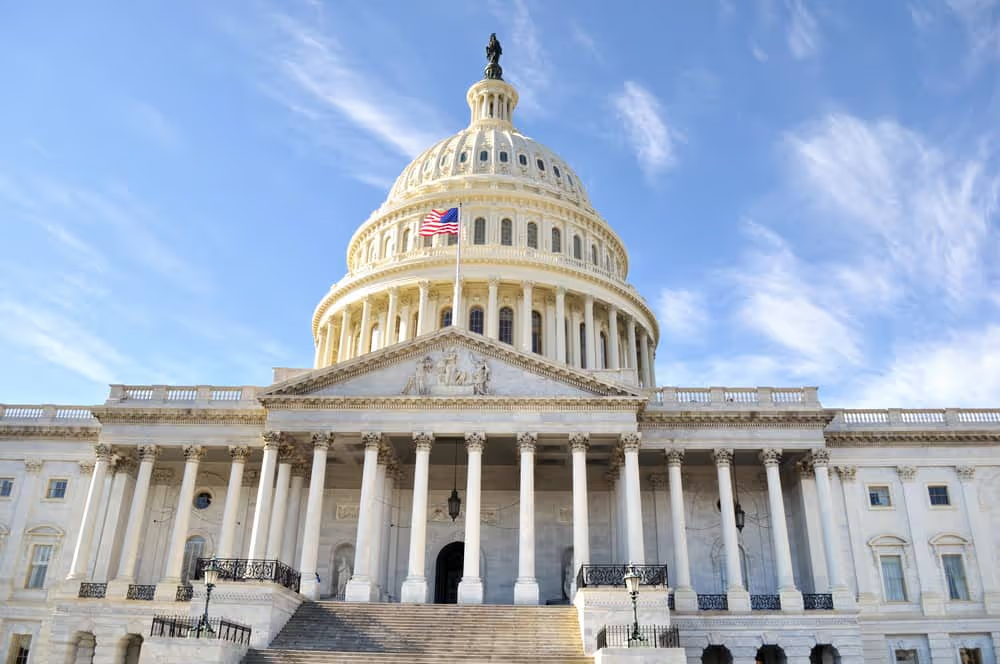The new tax bill that narrowly passed both the Senate and the House in July 2025 is going to have a significant impact on the average taxpayer. Some good, some not so favorable. Below is an outline of a few of the key changes beginning in 2025 and later. The changes are sizeable and can be complicated, so planning is the best roadmap for success. Please feel free to reach out to us at KMAF if you’d like to discuss these items further or assist you with year-end tax planning.
Note: Modified Adjusted Gross Income (MAGI) starts with your adjusted gross income, then adds back specific deductions depending on the tax benefit being considered.
Individuals
- Beginning in tax year 2018, tax rates dropped, with the top rate being 37% per the Tax Cuts and Jobs Act (TCJA). In 2025, these rates were scheduled to increase back to the higher 2017 rates, with the top rate being at 39.6%. The OBBBA makes the lower TCJA rates permanent with continued inflation adjustments each year.
- Standard Deduction increases permanently and adjusts for inflation.
- Itemized Deduction Pease Limitation was repealed and replaced with a new 2% reduction for high-earning taxpayers in the 37% bracket.
- Child non-refundable tax credit increases to $2,200 beginning in 2025
- A deduction of up to $25,000 for qualified tips received by a person working at a job that customarily and regularly receives tips will be allowed for employees and subcontractors. The deduction begins to phase out at $150,000 for single filers and $300,000 for married filing jointly.
- Salons, barbershops, spas, and other tip-based businesses are now eligible for the FICA Tip Credit, which provides a dollar-for-dollar credit for the employer portion of FICA taxes. Previously, this benefit was only available to restaurants.
- A deduction of up to $12,500 for qualified overtime compensation, which begins to phase out when Modified Adjusted Gross Income exceeds $150,000 single, $300,000 married filing jointly. The overtime must be reported separately on Form W-2.
- A deduction of up to $10,000 for car loan interest paid on new auto loans for vehicles purchased in 2025-2028 that have their final assembly done in the United States. The phase-out begins when Modified Adjusted Gross Income reaches $100,000 single and $200,000 married filing jointly.
- For those who itemize deductions, the state and local tax limit (SALT) has been raised from $10,000 to $40,000, but this new amount phases back down to $10,000 for taxpayers whose Modified Adjusted Gross Income is over $500,000. These amounts are scheduled to be adjusted for inflation each year.
- Seniors 65 and over - The Senior Deduction allows a $6,000 deduction for each individual over 65, which begins to phase out for income over $75,000 for single and $150,000 for married filing jointly.
- Trump Accounts:
- Traditional tax-deferred, not tax-free IRA accounts for minors (under 17 years of age) will allow for contribution limits of $5,000/yr until the beneficiary reaches 18.
- Contributions from individuals are non-deductible.
- Distributions are not allowed until the calendar year the beneficiary reaches 18.
- The Department of the Treasury will fund a $1,000 free contribution to new accounts set up for children born in 2025-2028.
- Charitable donation deduction for people who don’t itemize deductions of $1,000 single and $2,000 married filing jointly starting in 2026.
- Miscellaneous itemized deductions that were suspended in 2017 are permanently disallowed. This includes deductions for safe deposit boxes, investment fees and expenses, tax preparation fees, hobby expenses, and unreimbursed employee expenses (except for eligible teachers).
Gone After 2025 – Plan before year-end or earlier
- Energy-efficient Home Improvement Credit of $1,200 and the additional $2,000 credit for qualified heat pumps, heaters, biomass stoves, and biomass boilers, scheduled to sunset in 2032, will now end in 2025.
- Residential Clean Energy Credit of 30% for qualifying property based on solar, small wind, geothermal, and battery storage energy, with no annual or lifetime limit scheduled to sunset in 2034, will now end in 2025.
- Clean Vehicle Credit of $3,750 or $7,500 for qualifying new vehicle purchases scheduled to sunset after 2032 will end September 30, 2025.
Businesses
- The 20% Qualified Business Income Deduction (QBID), scheduled to phase out in December 2025, is now permanent, and the previous phase-in limits for Specified Trade or Businesses (STBs) are raised starting in 2026. This will allow more taxpayers to take advantage of the deduction in the future.
- Section 168(k) additional first-year bonus depreciation deduction for qualified property placed in service after January 19, 2025, was scheduled to drop to 40% in 2025, but per the OBBBA, is permanently restored to 100%.
- NEW: Section 168(n) additional first-year bonus depreciation deduction for qualified production property (QPP). QPP is generally nonresidential (commercial) real property (buildings, structures) used in manufacturing and production.
- Employer credit for paid family and medical leave scheduled to sunset in 2025, is extended permanently. It provides a general business credit for employees on qualifying leave for a maximum of 12 weeks. Credit ranges from 2.5% to 25% depending on the payment rate.
- Status quo for PTET - The effects and benefits of various states’ pass-through entity taxes (PTET) were not addressed in the bill. No action was taken to try to limit their usage.
- BIG NEWS FOR 1099 REPORTING: For tax year 2026, the OBBBA has increased the 1099 reporting threshold from $600 to $2,000 reporting threshold.
- STARTING TAX YEAR 2026 – Business, Travel, and Employer-provided meals:
- Employer-provided meals to their employees at their office/business location for the employer’s convenience during the regular workday are not deductible for tax purposes - 0% deductible. This includes de minimis fringe benefits like coffee, snacks, etc. There are some exceptions for businesses such as restaurants and fishing vessels.
- Meals for client and prospect meetings and employees working late will still be 50% deductible. A specific exception for fishing vessels and related industries allows a 100% deduction.
- Employee-focused events such as holiday parties, team-building events, overtime, and training are still 100% deductible.
If you have questions or need assistance with online payments, contact our team at (410) 643-4477 or schedule a confidential consultation.


